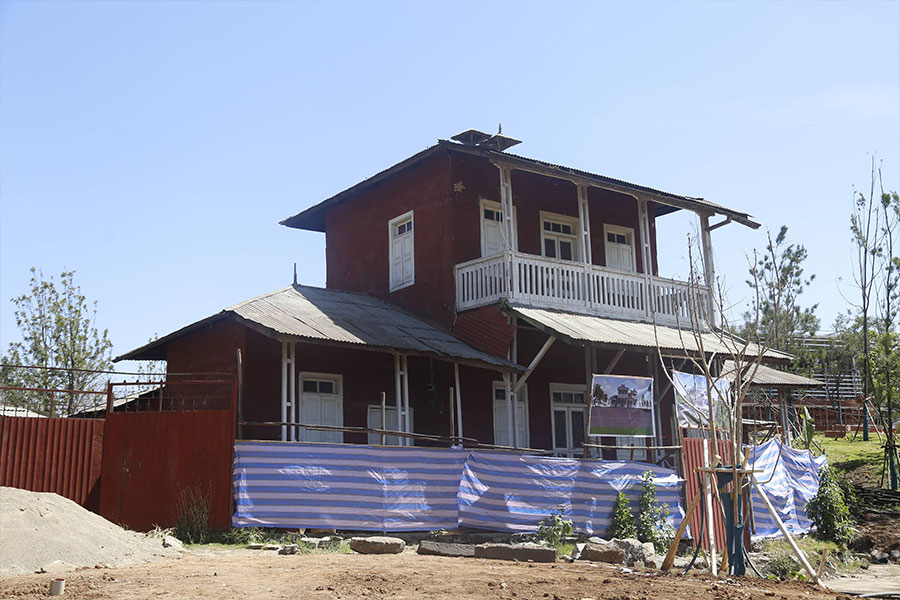
Nov 30 , 2019
While many of us would like to follow in the footsteps of upholding our parents' traditions, some of them are simply unrealistic in the modern life we are building, writes HANNA HAILE IN VIEW FROM ARADA.
In a time management class, the instructor shares, “There is 24 hours in the day, split those hours into three, eight hour portions.” He challenged us to think what the eight hours of free time would be for us. The theory is, even with time taken out for jetting through the city, there should be enough hours to do something else productive with our time. This could be a good time to learn new skills, develop self care or even apply training in a new method of work.
Ethiopia is not among the top 10 countries that have the most holidays in the world, yet the amount of social commitments that entangle even young people is staggering. As I was commuting from one end of the city to the other, the taxi driver received a sequence of calls from people close to him. He seemed annoyed and irritably shared, “The dead won’t know we are there. I am working.”
As our social duties come in the way of our productivity, while it is not recognized as a formal holiday, the days each individual has to take off for weddings, funerals and other functions, all of which have side events, are a lot of obligations for an uncooperative city like Addis Abeba.
In the end, undecided, the driver’s dilemma was something close to what I felt recently during the string of events that come connected to weddings and holidays. Even though Ethiopia has only 13 formally recognised holidays a year, the commitments around the informal holidays are still serious social engagements.
While many of us would like to follow in the footsteps of upholding our parents' traditions, some are simply unrealistic in the modern life we are building.
There are traditions all over the country that are prohibiting our productivity. The various church related holidays that are not formally recognized flutter the hearts of many, as employees feel conflicted between two worlds: one where they would like to celebrate the holiday with family; and one being accountable to their work.
As the government sets the parameters through its Job Creation Commission to provide 20 million jobs within a decade, this ambitious plan includes three million jobs for this very year. Just recently it was reported that over 34,000 job opportunities in Addis Abeba were created in the first quarter of the fiscal year. While not all these jobs are permanent, for the Commission it is a step forward.
Yet as many of the unemployed make their way to the workforce, the reality is that many of those who leave the university are not leaving with the many soft skills necessary to build careers.
Last month BBC Amharic interviewed a young man who put himself through many obstacles to graduate from engineering school. Today this young man still has not found a job and is forced to clean shoes to make his living. He mentions meeting some of his teachers and their inability to look him in his eyes.
There is a missing link with how we are understanding the unemployment issue in Ethiopia. It is not simply that youth are unable to find jobs, the quality of education has left many in a state of limbo. Technically these youths are capable of getting jobs in line with the subjects they have graduated in, though their lack of soft skills have rendered them difficult hires.
I was under the impression that some private school’s success is in their attention to students and smaller classroom sizes. While some might even attribute the success of those leaving private schools to build successful work to their strong command of the English language, it is actually the focus on developing the soft skills of students. Through group work and specific tasks these schools have invested in the student’s teamwork, communication skills, creativity, problem solving, time management skills and many others. When these students join college or the workforce, they are regarded as having a higher capability than those who have been through public educational systems.
Therefore, there is a need to solve these parallel problems. Those who have a job should prioritise work over social obligations, so they should raise their productivity and create more jobs for the unemployed that are suffering. With a mentality of, “because I said so,” instead of instilling logical thinking, we fail our nation’s employees in many ways. We have much to learn on the journey of a healthy development. Ethiopia is like the phoenix, cyclically regenerated or born again. With each rising sun, there is an opportunity to work on ourselves and continue to learn for the greater good.
PUBLISHED ON
Nov 30,2019 [ VOL
20 , NO
1022]


Fortune News | Jan 29,2022

Editorial | Apr 30,2022

Life Matters | Dec 29,2018

Fortune News | May 04,2025

View From Arada | Apr 20,2025

Fortune News | Jul 10,2020

View From Arada | Jun 21,2025

Commentaries | May 31,2025

Sunday with Eden | Jul 24,2021

View From Arada | Oct 31,2020

Dec 22 , 2024 . By TIZITA SHEWAFERAW
Charged with transforming colossal state-owned enterprises into modern and competitiv...

Aug 18 , 2024 . By AKSAH ITALO
Although predictable Yonas Zerihun's job in the ride-hailing service is not immune to...

Jul 28 , 2024 . By TIZITA SHEWAFERAW
Unhabitual, perhaps too many, Samuel Gebreyohannes, 38, used to occasionally enjoy a couple of beers at breakfast. However, he recently swit...

Jul 13 , 2024 . By AKSAH ITALO
Investors who rely on tractors, trucks, and field vehicles for commuting, transporting commodities, and f...

Oct 4 , 2025
Eyob Tekalegn (PhD) had been in the Governor's chair for only weeks when, on Septembe...

Sep 27 , 2025
Four years into an experiment with “shock therapy” in education, the national moo...

Sep 20 , 2025
Getachew Reda's return to the national stage was always going to stir attention. Once...

Sep 13 , 2025
At its launch in Nairobi two years ago, the Africa Climate Summit was billed as the f...